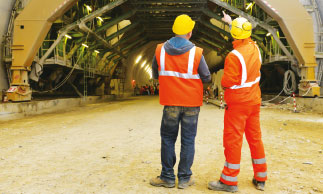Toolbox Talks & Visual Standards
The following slide packs can assist in your toolbox talks and raise topical issues at your worksite to discuss and improve safe work practices. Click on the topic to download presentation.

The following slide packs can assist in your toolbox talks and raise topical issues at your worksite to discuss and improve safe work practices. Click on the topic to download presentation.
These checklists will help you on site in managing workplace health risks in relation to the following:
Lead
Asbestos
Silica
They will help you to pinpoint weaknesses and give tips on things you need to be aware of or have in place.

A concise summary of the health hazards arising from the construction industry and how the Breathe Freely Austtralia campaign aims to address them.
Find out about the hazards and risks for specific trades including understanding the hazards, control options, managing the risk and workplace exposure limits.
Managing health risks and understanding how occupational hygiene fits into the construction industry.
This Australian case study, the Sydney Metro Silica Dust Case Study, details a number of dust reduction techniques and their benefits. The Sydney Metro identified the opportunity to better understand and positively influence the control of exposures to RCS during demolition.
Supporting UK case studies from actual UK construction projects which show real benefits from control solutions putting occupational hygiene into a construction site context. The link below will take you to the Breathe Freely UK website.
Former UK Stone Worker Suffering From Silicosis Tells His Story (as told to Dr David Fishwick, Chief Medical Officer at the Health and Safety Laboratory).
This tool is for use by managers responsible for health and safety on construction sites. It contains instructions, 8 assessment framework tools that relate to the 6 leading indicators and finally an action plan.
Understand the role of occupational hygienists and how they can help you. Health risk assessments, control measures and training and communication.
Outlines facts & best practice for the use of Respiratory Protective Equipment (RPE) when issued as a means of control to prevent the inhalation of hazardous substances at work where users have facial hair.